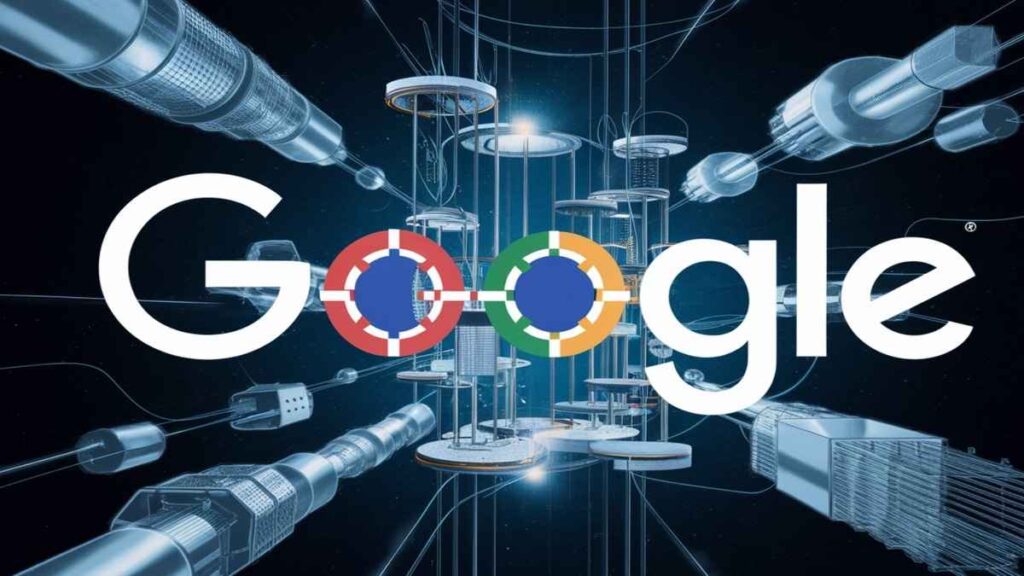Highlighted Points on Quantum Computing:
- With grants of up to $150,000 USD, Google is launching a research program for academics looking into quantum transduction and networking for scalable computing applications.
- The company’s Quantum AI team is creating superconducting qubit platforms with the goal of using distributed computing to improve data center performance, robustness, and cost effectiveness.
- The move to distributed quantum computing offers substantial reductions in control wire and cryogenic requirements together with greater adaptability and resilience of architecture.
Details on Quantum Computing Research Program by google:
Google is advancing quantum technologies by utilizing its experience in modular computing. The company’s Quantum AI team is creating superconducting qubit platforms with the goal of using distributed computing to improve data center performance, robustness, and cost effectiveness.
Google is launching an academic research program with prizes of up to $150,000 USD for projects looking into quantum transduction and networking for scalable computing applications in order to assist these efforts. The team also stated that larger awards are available for outstanding experimental concepts that provide a convincing case for more funding.
According to details regarding Google’s proposal request, the move to distributed quantum computing promises enhanced modularity and design robustness while significantly decreasing requirements for cryogenics and control wire. Processing quantum data straight from the source may also result in novel scientific findings that influence current research as well as the architecture of Google’s quantum devices in the future.
There are still many obstacles to overcome, especially in the transduction process, which transfers high-fidelity information between superconducting qubits and optical photons. Since this technology is still in its infancy, research into how to make it better is crucial. For distributed quantum systems to advance beyond quantum key distribution and parallel computing, new applications must be developed.
Google’s strategy is based on the demonstrated benefits of modular computing over traditional monolithic architecture. These benefits range from increased robustness to cheaper costs and improved performance, and they apply to single-facility networks as well as worldwide data-sharing systems. By applying these ideas to quantum technology, Google hopes to develop more efficient and scalable quantum computing systems.
One major advantage of distributed quantum computing in data centers is the potential for improved modularity. This modular approach enables more robust system design, lowering the risk of system-wide failures. Furthermore, it significantly reduces the requirement for extensive control wiring and cryogenics, which are major obstacles in the construction and maintenance of quantum computers.
Furthermore, quantum technology’s ability to process data directly from its source has the potential to yield extraordinary scientific breakthroughs. This capability allows for real-time study of quantum data, which may yield new insights and increase our understanding of the universe. Such advances are expected to have a significant impact on both the design of short-term experiments and the future architectures of Google’s quantum devices.
Despite these encouraging signs, the field confronts enormous challenges. High-fidelity transduction, or the transfer of information between superconducting qubits and optical photons, is still in its early stages. Improving this technology is important to the development of distributed quantum computing. Research efforts must be directed at enabling the seamless transfer of quantum information between various mediums, such as optical or flying microwave qubits.
Google has identified specific research topics for ideas addressing these difficulties. These include superconducting qubits being transferred to quantum transmission medium such as flying microwave qubits and optical qubits, as well as the direct transfer of alternative sensing or computing platforms, such as neutral atom arrays or diamond defects, to superconducting qubits. Other study areas include the creation of scientific or industrial applications for linked quantum systems with fewer than 50 logical qubits, as well as applications for multi-qubit quantum sensors connected to quantum computers via transduction to obtain exponential speedups in quantum learning.
According to Google, the cash will be distributed as unrestricted grants to colleges, not for overhead or indirect expenditures.
Professors in universities or degree-granting research institutions are eligible to apply for these scholarships. Applications may serve as Principal Investigators (PIs) or co-PIs on a maximum of two PIs per proposal, and proposals must be relevant to computing or technology. Submissions ought to be in line with Google’s AI Principles and show promise for major influence.
Informational seminars with live Q&A will be held by Google Quantum AI to talk about these technologies and possible uses. Participants can sign up here to RSVP.
Also Read: Boston Celtics Claim 18th NBA Title with Victory over Dallas Mavericks and Prize Pool

